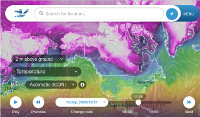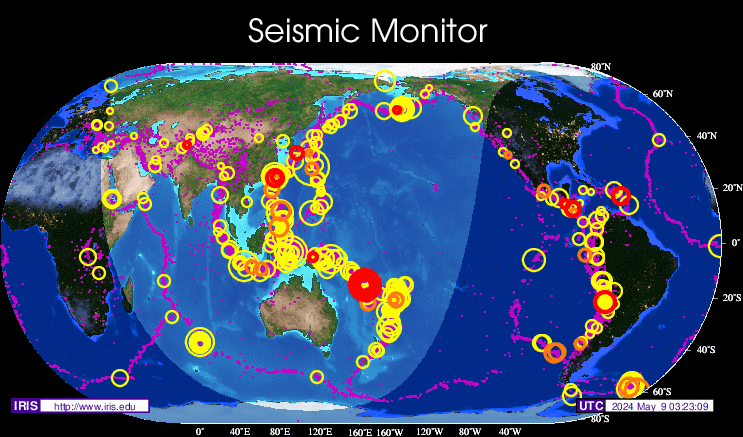Why this blog?
Until this moment I have been forced to listen while media and politicians alike have told me "what Canadians think". In all that time they never once asked.
This is just the voice of an ordinary Canadian yelling back at the radio -
"You don't speak for me."
email Kate
Goes to a private
mailserver in Europe.
I can't answer or use every tip, but all are appreciated!


Katewerk Art
Support SDA
Paypal:
Etransfers:
katewerk(at)sasktel.net
Not a registered charity.
I cannot issue tax receipts
Favourites/Resources
Instapundit
The Federalist
Powerline Blog
Babylon Bee
American Thinker
Legal Insurrection
Mark Steyn
American Greatness
Google Newspaper Archive
Pipeline Online
David Thompson
Podcasts
Steve Bannon's War Room
Scott Adams
Dark Horse
Michael Malice
Timcast
@Social
@Andy Ngo
@Cernovich
@Jack Posobeic
@IanMilesCheong
@AlinaChan
@YuriDeigin
@GlenGreenwald
@MattTaibbi
Support Our Advertisers

Sweetwater

Polar Bear Evolution

Email the Author

Pilgrim's Progress

How Not To Become A Millenial

Trump The Establishment
Wind Rain Temp

Seismic Map

What They Say About SDA
"Smalldeadanimals doesn't speak for the people of Saskatchewan" - Former Sask Premier Lorne Calvert
"I got so much traffic after your post my web host asked me to buy a larger traffic allowance." - Dr.Ross McKitrick
Holy hell, woman. When you send someone traffic, you send someone TRAFFIC.My hosting provider thought I was being DDoSed. - Sean McCormick
"The New York Times link to me yesterday [...] generated one-fifth of the traffic I normally get from a link from Small Dead Animals." - Kathy Shaidle
"You may be a nasty right winger, but you're not nasty all the time!" - Warren Kinsella
"Go back to collecting your welfare livelihood. - "Michael E. Zilkowsky
What I’d like to know is did the Mayor and members of the Tallinn city council ride mass transit more and if not why did they expect anyone else to?
I always find it fascinating to listen to social engineers and planner-types who complain about how supporters of capitalism care only about money.
Then, they immediately try to treat people as if all they care about is money, and then act all shocked to find out this isn’t the case.
I used to take the bus. I don’t anymore. You know why? It had exactly nothing to do with cost, and exactly everything to do with the shitty service.
If anyone is interested, here’s my take on why I smarted up and bought a car.
Like most free stuff, it’s worth about what you paid for it.
Although, I assume this must be some new definition of “free”.
Public Transit fares are usually low enough anyway that if you eliminate them the reduction in cost to potential users won’t be big enough to attract those who can and do afford private transport. Most of those who can afford to use private vehicles will continue to use them because the reason they are already using them isn’t that public transport is too expensive, it’s because they don’t like public transport, so as long as they can pay for an alternative they like better, or dislike less, they will.
i chose to walk, for the exercise. even free transit doesn’t work for me. bazinga
Trust it to leftists, to screw everything up. People drive cars because they like driving cars.
Car usage is limited by congestion, and by a lack of parking; and as I have seen in St. Petersburg, those
problems have to be extreme to make much of a difference.
Hehehehe….your “bazinga” reminded me of Sheldon and his bus pants.
You have to read the article to find the valid conclusion:
in a relatively large city where public transportation already sees high use and is relatively cheap, the fare-free system may not be the most effective way to get people out of their cars and onto the bus.
The only effective way to make more people take mass transit is with rapid and significant increases in the cost of driving and parking.
Congestion taxes are effective and so are big jumps in the price of fuel. Anything else isn’t going to motivate change; modern humans are lazy and habitual by nature, they will adapt to what they prefer rather than change.
Oh no, human nature in action again!
“Why won’t they just listen to me dammit!”
Socialist utopian dreams of making people do things to change habits ‘for the greater good’ run counter to the nature of modern urban humans, who are largely narcissistic and self centered. Socialism is for poor people who have no other options.
Great except comments for that post are closed.
In Vancouver, I’d fathom to say that the cost of operating organizations like the transit police and ticketing sales, TransLink, ticketing / gate hardware and other administration, costs more to the taxpayer then what fares actually collect. If you were to go free with transit in Metro Vancouver, I think the overall win would be for the taxpayer. As for ridership, given bike lanes and lack of parking, I’d certainly say ridership would increase.
It appears that there is some confusion about who is the provider.
In fact, you and your fellow riders and taxpayers are providing job for useless union.
Providing actual service by the union is more of a nuisance and inconvenience to the union members than something they should be doing as a matter of fact.
There is this point of curiosity about having a job, in this case driving a bus.
Driver goes in circles driving from stop to stop in an endless loop, that can be somewhat mind numbing, perhaps on the borderline of insanity, none the less, why is it that he would avoid doing his job.
Why? What the hell is his (the driver’s) point?
More bums started riding the free transit so people who could afford it switched to cars. The study found that people in poor neighborhoods used transit more if it was free. But there was almost zero change in total ridership. This arithmetic suggests that riders who were better off used transit less when it was free.
This silly free transit idea comes from socialists who don’t understand market economics. Lower prices do tend to increase demand. But lower quality will tend to reduce demand. Thus, public transit got cheaper, but the bums reduced the quality, so demand remained unchanged.
[Edited by Oz]”In Vancouver, I’d say the cost of operating is more for the taxpayer than fares actually collected. If transit were free in Metro Vancouver, I think the overall win would be for the taxpayer.”
Wow, you just reversed yourself in two sentences.
No city mass transit system recoups costs through fares. Fares merely defray operating costs. They all operate in the red, all of them, everywhere. Actual mill rate taxpayers in Canada and the U.S. lose, most people who use mass transit daily to commute for work or school are not taxpaying landowners.
The issue with mass transit isn’t between winning and losing for taxpayers, it’s between losing with socialism lite(riders pay fares) and losing BIG with communism(free ridership).
nothing is ever free when government is involved.
I live in a small interior town in BC. BC Transit runs buses here and in larger centers like Cranbrook and Trail which have ops of 10 to 20 thousand people. When I go to those towns I always look at the ridership on their much larger buses. Al- most always those buses have very few to no passengers. I return home and the small buses here are not much different.
A new mayor was elected 3 years ago with a commitment to cut Town costs. After a year he reported to the community that the Town could supply a taxi on call as the form of public transit at a cheaper cost than supporting a bus system. Needless to say we still have a bus service.
Bottom line is that public transit is decided by elected politicans who are spending your money not theirs. It looks good on paper as a proactive effort when it is actually more a commentary on the affluence of a community that can afford to waste money.
Its very simple. The best available “public” transit system is the personal automobile. It goes exactly where you want to go, and exactly when you want to go there. Best of all, the cost is carried 100% by the users.
Anything else is an inconvenient compromise which costs more and doesn’t function as well.